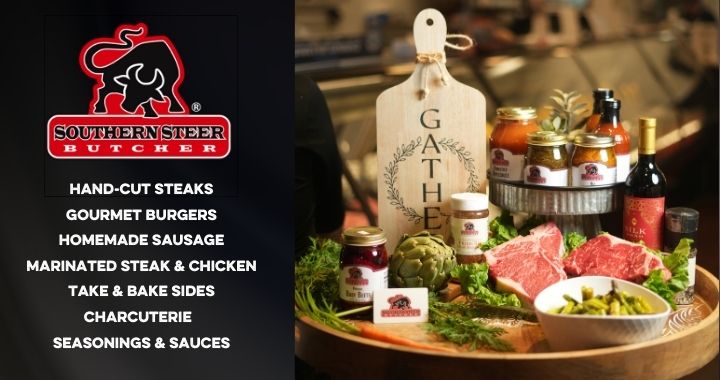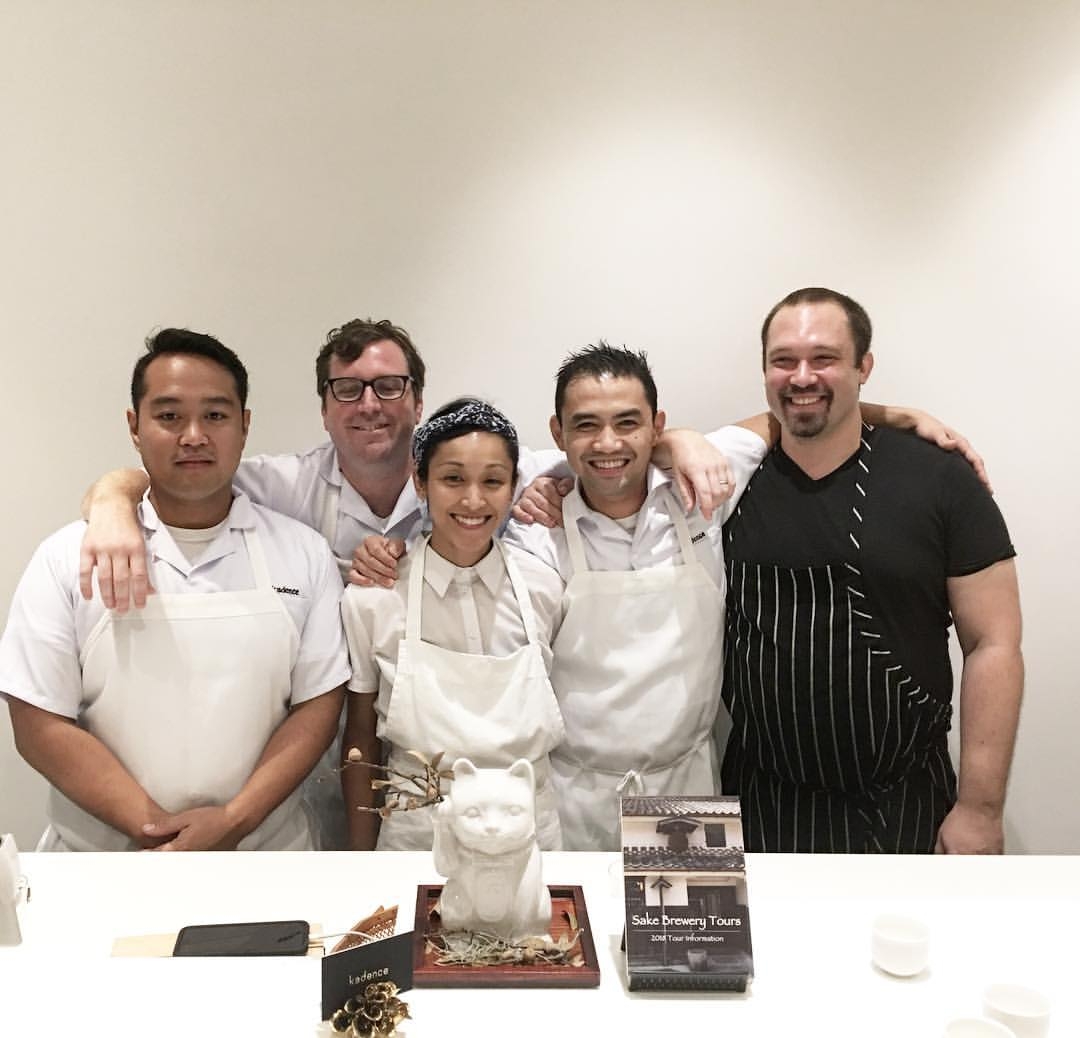by Michael Cuglietta
An Open Letter to Anyone Applying for a Job at Kadence
You are at the office, killing time on social media, when Kadence’s latest Instagram post appears on your feed. The trio behind Kappo is looking to hire a kitchen helper for their new restaurant.
This puts an image in your head. One in which you are standing in a busy kitchen, wearing a white chef’s coat and tossing a pan full of sautéed mushrooms into the air with nothing more than a flick of the wrist.
You say to yourself, life is too short to be spending forty hours a week chained to a desk. Sure, you make a good living. But there are more important things in life than money.
I, like you, had romantic notions about working in a kitchen. That’s why, when I was given the opportunity to be a part of Kadence’s opening crew, I seized it.
I’m here to tell you, despite what the Food Network might’ve lead you to believe, stepping into the kitchen is nothing like playing lead guitar in a rock band. It’s more comparable to being drafted into the armed services.
Your day will start at 7am. If you are lucky, you will be home by 1am. But, usually, it’ll be closer to 2am. You will be working six days a week, for minimal wage. But, for every hour over 40, you will earn time and a half. This means, in order to make a living, you will have to work 80 to 90 hours a week.
You will have to learn to work on an empty stomach. In the kitchen, there’s no time to stop and eat.
On the odd occasion when the chefs do find time, they will prepare a family meal. Usually, fish scraps, which, in most restaurants, would’ve gone in the trash, marinated in soy sauce and served over rice. Or the same ingredients will be fried, along with an egg.
The chefs have spent their entire professional lives in the kitchen. They are trained to eat fast. In just minutes, they will deposit their empty bowls in the sink, for you to wash. They will tell you to take your time. But the first seating is rapidly approaching. So you throw most of your meal away and get back to work. But don’t let the chefs catch you. At Kadence, wasting food is an unforgivable crime.
Think of the job as a game of Tetris. As the blocks fall, you must organize them into neat rows. If you mislay a piece, or fall behind, your tower will reach an unmanageable height. Then the blocks will start dropping at an accelerated rate as you scramble to line them up and make them disappear before you get the game over screen.
The sink will be your home. You will have other responsibilities, which will take you away from your home. But, no matter what else is on your plate, you are expected to keep your home in order.
The chefs will give you small food chores. These are tests. If you pass, you will be given more opportunities, away from the sink. But every time you fail, you are further solidifying your role as dishwasher.
Be careful what you wish for. Each time you demonstrate competency in a new task, it will become a part of your daily routine. And your routine is already so demanding, you spend 15 hours a day racing around the kitchen and, still, there isn’t enough time to get everything done.
Since the stove is directly behind the sink, you will be asked to keep an eye on the chawanmushis, a savory Japanese egg custard, served at each seating. You will be told to take them off the stove the moment they set. If you do a good job, after service, the chefs will complement you. Then, from that moment forward, you will be in charge of cooking the chawanmushis.
You do up to three seatings a night, serving ten guests at a time. It would be ideal if you could pre-cooked all the chawanmushis. Then, during service, all you would have to do is get them up to temperature. But there are only twelve chawanmushi bowls. This means, after each chawanmushi course, you will have to wash the bowls. Then cook the next round.
This might seem simple enough. But during service, you are battling an already unmanageable list of things to do.
You, for instance, are in charge of shucking the oysters. Shucking oysters is not hard. It’s the timing that makes it difficult. The oysters are served as a first course, right after the guests are seated. This is the toughest part of the evening, especially if the first seating is running late and the next set of guests are arriving.
Kadence is a small restaurant, run by a small team, each of whom fill many roles. Jennifer Banagale, in addition to being part owner, is the pastry chef and one woman wait staff. After the savory courses, she must go behind the sushi bar to serve dessert, which means you get a temporary promotion from dishwasher to headwaiter.
You must go into the dining room, pick up everyone’s dirty plates and bring them to the sink in the service station. While you are doing this, you notice the water glasses are near empty. And two guests have asked you to select a sake to pair with their dessert.
The next seating, meanwhile, is standing at the bar in the adjacent room, waiting for someone to come pour drinks. No matter how rushed you may be, you must maintain a calm front. Greet each guest warmly. As you take their drink order, introduce yourself, ask them,
“Is this your first time dining with us?”
They will want to make small talk. There is an art to cutting off a conversation without offending the person you are talking to. You must become proficient in this art. Because Jen has poked her head into the room to tell you she has finished with the first dessert and needs you to pick up the plates before she can serve the final course. She reminds you, the water glasses need refilling and those two guests are still waiting for their sake.
You pour two glasses of sake and put them on a tray. Also, on the tray, you place a pitcher of water. The couple in front of you is telling you about their trip to Japan. You need to get out of this conversation. Tell them you have to go bring drinks to the dining room. Apologize for having to leave. Smooth things over with a generous taste of sake. “Try some of this. Let me know what you think.”
After the water glasses are filled, you drop the pitcher off at the bar. Then take the tray back into the dining room to collect the first round of dessert plates. By now, the sink and every available surface in the service station is filled with dirty dishes.
The guests have just been given their final plate. This gives you ten minutes to shuck the oysters for the next seating. But first you must go to the bar and see if anyone is ready for another drink.
You are happy to see Lordfer Lalicon, one of the chefs and owners, behind the bar, pouring drinks. He tells you, “I got this. Go do the oysters.”
You head back into the kitchen, get the oysters out of the fridge. That’s when you remember, it’s been too long since you last checked the bathroom.
Through a back door, you sneak into the dining room and slip into the bathroom, undetected. The toilet paper roll is almost empty. The seat is up and there is a collection of used paper towels on the floor around the trash bin.
You sneak back out the way you came in and get a fresh roll of toilet paper from the storage closet. You return to the bathroom, careful to conceal the toilet paper behind your back. If a guest were to see you, walking through the dining room with a roll of toilet paper, the chefs would, surely, not be happy.
You put the new roll in the toilet paper dispenser and fold the tip into a perfect triangle. You pick the paper towels up off the floor and put the toilet seat down. You wipe all surfaces with a sanitizing rag, light a new stick of incense. Then race back to the kitchen.
The head chef and owner, Mark Berdin, is standing over your oysters. “How long have these been out of the fridge?”
“I was just about to get to them. Then I remembered I had to check the bathroom.” Your response pisses him off. In the kitchen, mistakes can be forgiven. But there’s zero tolerance for excuses.
These are Shigoku oysters, from Washington. He tells you they are the most expensive oysters currently on the market. He can’t afford to be having his dishwasher ruin them. He orders you out of the kitchen.
That’s when you remember the chawanmushis. If you don’t get them started soon, they will not be ready in time. You fill the bottom of the steamer with water and put it on the stove.
You line up the ceramic bowls and begin ladling in the batter. This is a delicate process. Each ceramic needs the same level of batter, so they will cook at the same pace. And you must be careful not to spill any.
You have half the ceramics done when you hear chairs moving in the dining room. The guests are leaving.
At Kadence, they practice the Japanese custom of walking their guests out. Guest service, Mark will tell you when you first start working at Kadence, is the number one priority. Even the food ranks second under guest service.
You leave the chawanmushis and go to the front door. You stand with your hands folded behind your back. As each guest walks out, you look them in the eye, thank them for coming, and bow. When I say bow, I don’t mean simply lowering your head. You must bow at the waist. Don’t stop until your body is forming a 90 degree angle.
Now that the first guests are gone, the dining room needs to be cleaned and reset. Every guest will need chopsticks, a cloth napkin, which you need to make sure is folded the proper way, and a glass for water, each of which needs to be polished until it sparkles. The bathroom will, once again, need to be cleaned.
As the new guests are being seated, you have just enough time to get the chawanmushis in the steamer. But you must be quick about it. The moment the guest’s bottoms touch those seats, you are expected in the dining room with a pitcher of water. And, after their glasses are filled, you must get each of them an oshibori, a warm hand towel which, before service, you folded according to Japanese tradition, after soaking them in water infused with lemongrass.
You will spend the first part of this seating fighting to get caught up with the dishes. Kadence serves a set menu. The same dishes are used in each seating. You better prioritize your dishwashing. Find the ones that are used for the early courses. Get those cleaned first.
It’s still early but, just to be safe, you leave the sink to check on the guests. The man in seat nine is a camel. All the water glasses are nearly full, but for his. For the next couple of hours, you are going to be chained to this guest. Every few minutes, you will have to return to his side with a pitcher of water.
This is, also, the last seating. The moment it is over, the chefs are going to want to go home. But they can’t leave until the restaurant is clean and reset for the next day. During last service, you better find the time to mop the kitchen, polish the stainless steel, put the trash out and all the cookware must be washed and returned to its proper place.
*
You pull into your driveway at 2:30am. All day, you have been operating on adrenalin. All of a sudden, a switch is flipped. Slowly, the adrenaline leaks out of your body. It’s replaced with hunger and fatigue.
Your feet are so sore, all you want to do is sit on the couch and prop them up on the coffee table. But you are sweaty and smell of raw fish. You need a shower.
You put a frozen pizza in the oven, crack open a beer and take it into the bathroom. You swallow two Advil. Then take a hot shower.
After your shower, you eat your pizza in front of the television. You are careful to keep the volume down. You don’t want to wake your wife. She works normal hours. Tomorrow will mark a week since you’ve last seen each other awake.
By the time you get in bed, it’s past 3:30am. Tomorrow is Sunday. On Sundays, the first seating is at 11:30am. You have to be back at the restaurant by 7am.
There is so much adrenaline in the kitchen, it lingers for hours after you leave, making it hard to fall asleep. When Mark, Jen and Lordfer worked in New York City, they’d get out at 2am and go to a bar, where they’d drink with other cooks until 4am.
When you finally doze off, it’s worthless because, in your dreams, you are back in the service station, bent over the sink, scrubbing dishes.

Michael Cuglietta is the author of the forthcoming fiction collection, The Feast of Jupiter (Little Island Press, 2018), and the chapbooks Vertigo (Gertrude Press, 2012) and Clams in White Wine (Paper Nautilus, 2017). His work has appeared in NOON, Gettysburg Review, Tampa Review and elsewhere. http://mcuglietta.bigcartel.com
Editor’s Note: Kadence is currently looking to hire a fulltime kitchen helper.
Kadence
kadenceorlando.com
1809 E. Winter Park Rd., Orlando, FL 32803














